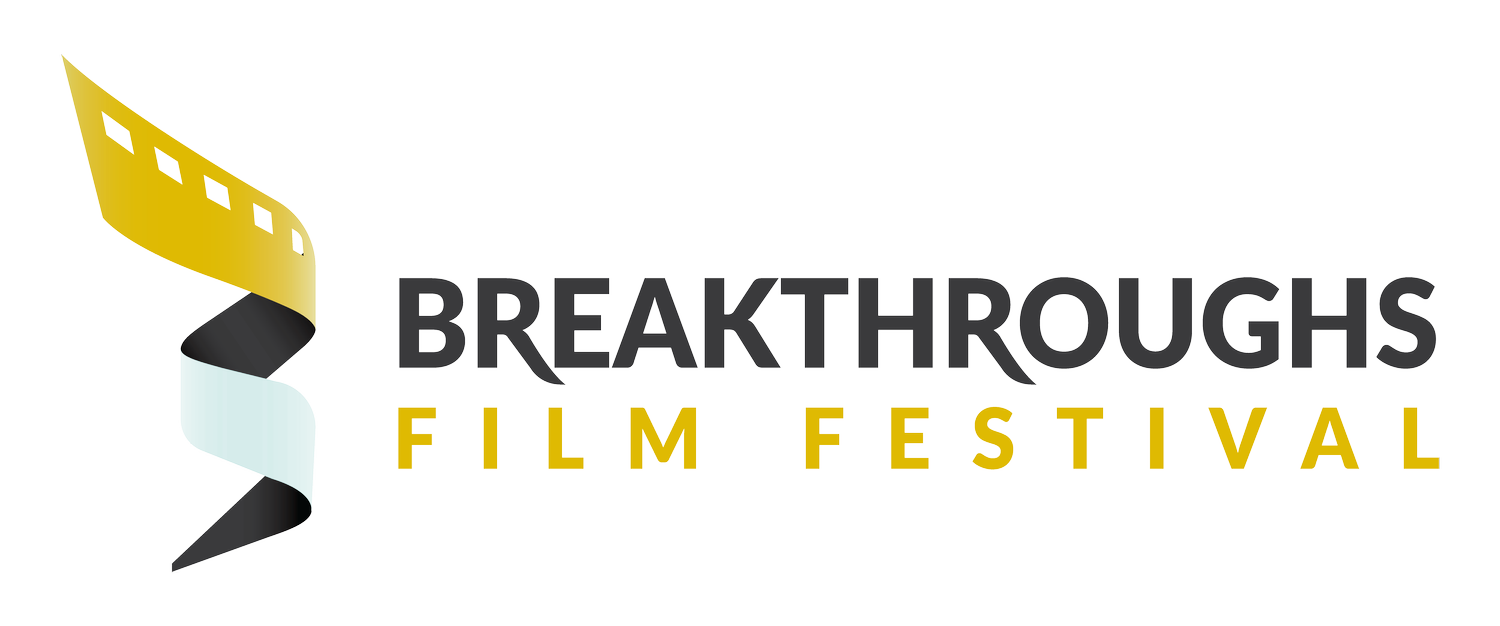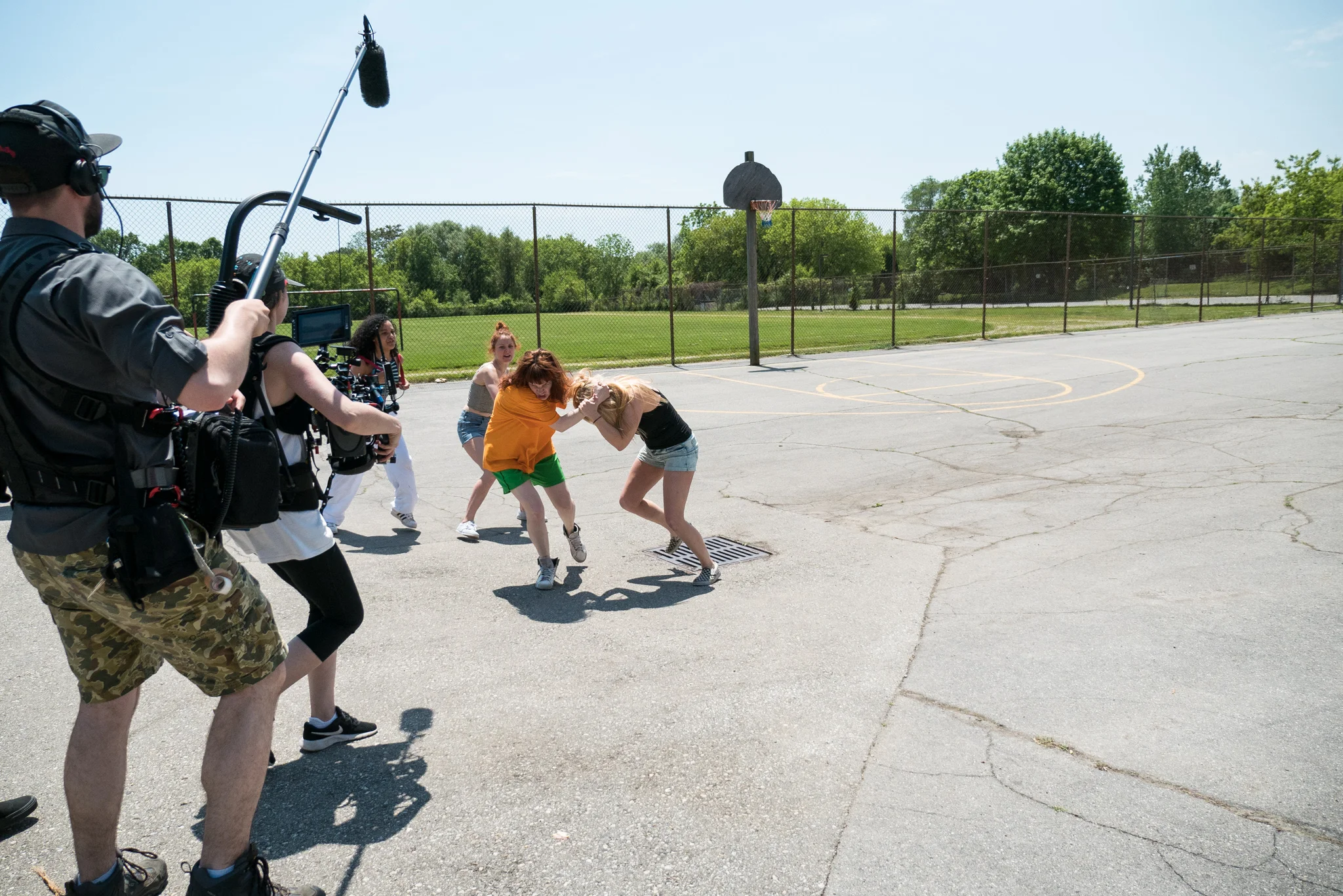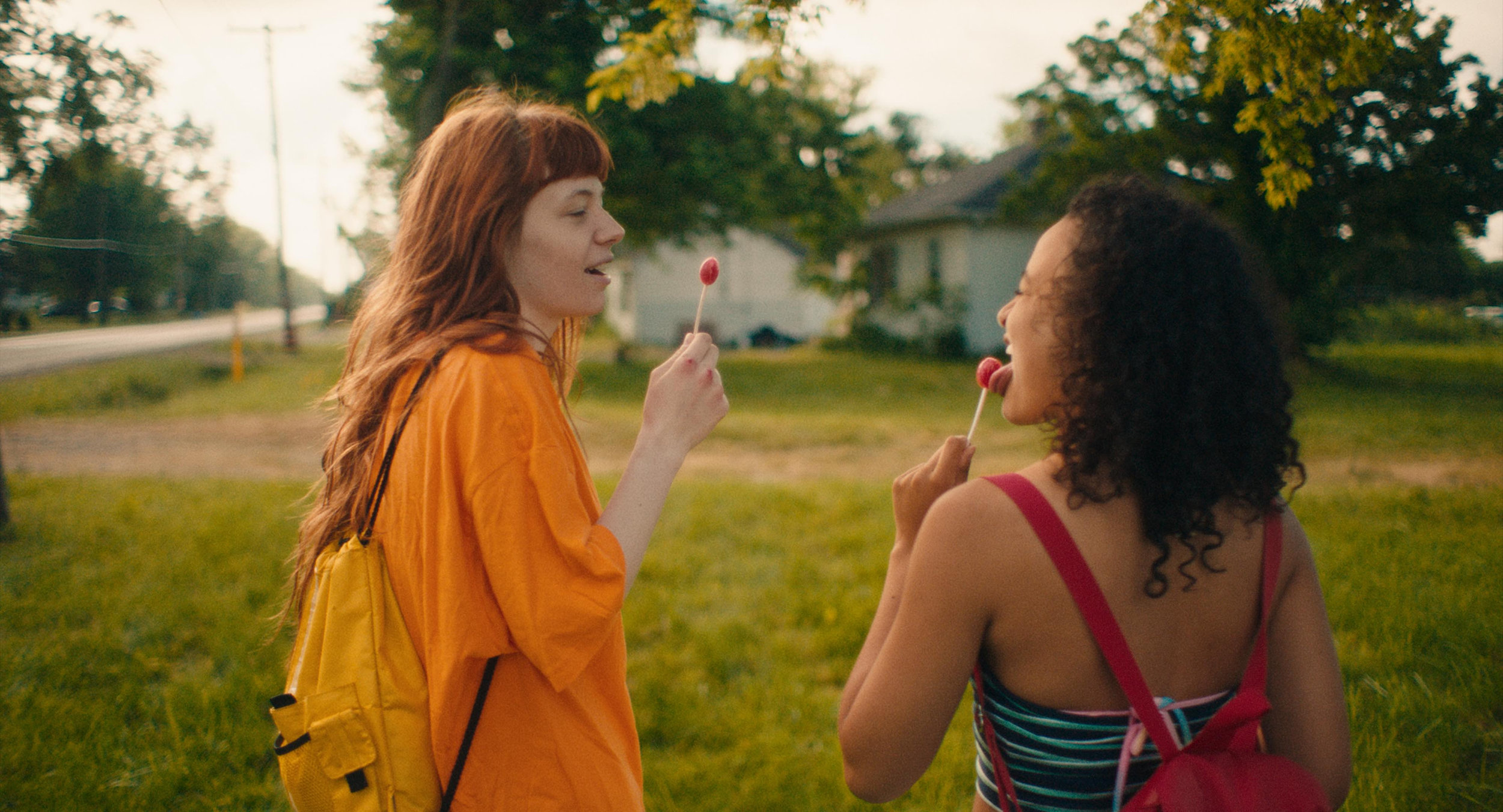The 2018 edition of TIFF has just gotten underway, and we couldn’t be more excited to see that its clear breakaway star is a young director who we happen to know and love. Jasmin Mozaffari, a BFF alum whose short film FIRECRACKERS screened at our fest in 2014, went on to direct a feature adaptation of her film, which is premiering at this year’s festival to unanimously rave reviews. The Globe and Mail just announced, “Mozaffari doesn’t merely announce herself as a vital new voice for Canadian cinema. She shouts it from the rooftop, daring gatekeepers to put their money where their newly woke mouths are” in an article entitled “Boom: The Dynamite Jasmin Mozaffari”.
FIRECRACKERS is an incendiary, gorgeously shot film about two teenage best friends searching for freedom over the course of a summer in their small hometown. We caught up with Jasmin in the lead up to her film’s premiere to talk about the inspiration for FIRECRACKERS, the process of adapting a short into a feature, and working to create space for herself in an industry that has been so unwelcoming of diverse voices up until this point.
BFF: What was the initial inspiration to make Firecrackers? And since you expanded your film from a short into a feature, I’m curious how the story evolved along the way for you?
When I wrote the short for Firecrackers back in 2012, I was still in film school. At that time I was tired of seeing narratives that celebrated the adventures and misadventures of boys. I was starved for a film and a story that embraced female characters that were unapologetic and bold. Especially in the film school sphere when we were just learning how to make films, it felt like many people played it safe. By my final year, I wanted to break out of that. Roughly three years after graduating, Caitlin Grabham (the producer and my creative collaborator) and I were talking about applying to the Telefilm Micro Budget Program, and it was obvious that our first film should be an expansion of the short. I had much more to say on this topic of patriarchal oppression, and I felt with a feature I could go deeper, darker, and take more risks. When I started writing the feature in 2016, I had no idea the cultural shift that was to take place with #metoo and #TimesUp. However, I remember sitting in dingy motel room in Northern Ontario with a notepad writing scenes for the script while the US Presidential election was playing out on TV. I saw a woman trying hard to break a glass ceiling while being met with misogyny and hatred, while a man who openly admitted to sexually assaulting women was growing a steady following. It was that moment, and many others like it that made me realize just how important it was to make this film, now.
BFF: Michaela Kurimsky, who plays Lou, the lead character in your film, is fantastic in her role and clearly such a star. How did you find her, and what was it like working with her and with the other actors in Firecrackers?
Michaela actually went to Ryerson for Film Studies like I did. She was a year behind me, so I knew who she was, but I didn’t know her personally. When she submitted for the role, she put forward a music video she was in for Wintersleep called “Amerika” (dir. by Scott Cudmore). In it, she has this amazing monologue at the beginning. I must have watched it like 30 times. Michaela has this unique ability to be both incredibly vulnerable and strong at the same time. I knew she was Lou when I saw that video.
Karena Evans was put forward by a mutual friend. Her audition tape stood out – hands down. She embodied Chantal immediately. In the audition I read with her, and we improvised quite a bit. In that audition process we were able to discover some of Chantal’s vulnerabilities, and that was really exciting. She’s an amazing talent and a star, and I was so lucky to work with both her and Michaela so early in their careers.
In general though, I was working mostly with actors who had very little experience, or none at all. It was a challenge because I was asking them to do very difficult, highly emotional scenes. We took several months to build the characters, often doing many sessions of improvising situations that would not be in the film. I think had we not done the prep in this way, it would have been impossible to have honest performances.
BFF: You worked with an almost entirely female crew! Was that intentional? How did you land on the some of the key creatives you chose to work with and what did they bring to the table?
Our key crew ended up mostly female, but that wasn’t planned. I believe that women like working with each other, and they resonated with this story. It was nice because I didn’t have to explain things to the keys about sexual assault, or about the sensitivities around female experiences – they already understood that because we have this shared experience of being female. I should also mention that we were extremely low budget, so they all had to sacrifice time and money to be on Firecrackers, but they did it because they believed in the vision and felt this story absolutely had to be told. I hope I can always work with people who I have shared values with – I think it’s so important.
BFF: You received funding from the Telefilm Micro-Budget Program. Your film is so incredibly rich, cinematic, and expertly crafted that I found myself marvelling that you created it on a micro-budget. What challenges did you face you working with the budget you had, and how did you overcome them?
I think no matter what type of film you make, it will be challenging, low budget or not. Because everyone who worked on the film believed in the vision, we didn’t have any huge challenges – but tonnes of small ones. Myself and the two producers (Caitlin and Kristy) were stretched very thin. We did not have money for a casting director or location scout, so we spent many months searching for actors and locations - it was absolutely exhausting. However, I think because we were so meticulous about the actors and the atmosphere, it pays off on screen. In terms of the quality of the image, Catherine [Lutes, Firecracker’s Director of Photography] was supported immensely through William F. Whites. They continue to champion her time and time again. Catherine also created custom LUTS (looks to apply in camera) so we could save time in the colour correction down the line. We took some risks with the cinematography, so helped us understand the overall look of the film from an early stage. Having executive producers who have connections and are willing to go the extra mile to help you succeed really made a huge difference on this film as well.
BFF: Do you have any advice for emerging filmmakers who are getting ready to make their first feature? Looking back on making Firecrackers, what would you have done differently, and what are you glad you did exactly as you did?
One of the reasons that Firecrackers is the work I’m most proud of is because I don’t really have any regrets. I can’t say I’ve always felt like that after making a film. Caitlin, Kristy, and I did everything we possibly could to get this film off the ground and running. Are there things I wish could be different? Sure, but I know in my heart that we gave everything we had and tried very hard to never settle. One thing I’m very happy about is that I did not rush the writing process. I took an entire year to write and workshop this script. It meant making a lot of sacrifices financially and socially. It was very, very tough at times. However, if you’re not happy with your script, you should not shoot. So my advice is not to rush through the development phase. Get your script to a solid place that you’re happy with before making the next move and don’t let anyone pressure you through it. I would also say be bold and take risks. If it’s rooted in honesty and truth, just go for it. Don’t water down your content to please other people.
BFF: Tell me about the production company that you started with your producer Caitlin! It’s so awesome that you decided to take this step. What are your goals for Prowler Film, and can you share any hints about what’s up your sleeve in terms of future filmmaking endeavours…?
Caitlin and I started our own company a few years ago called Prowler Film. We did this because we wanted to brand ourselves as filmmakers and it also helps to incorporate once you get into making features. Caitlin and I share a lot of values. We are both feminists who want to see intersectional stories and themes on screen. Films made under Prowler will be bold, take risks, and aim to be thoughtfully representative and progressive. In the future, it is our goal to somehow use our privilege to help underrepresented writers and directors get their films made as well. As for next projects, I’m interested in focusing on my experience as an Iranian female and the nuances of growing up as a mixed-race person.
FIRECRACKERS plays Sep 8, 10, and 12 during TIFF.



